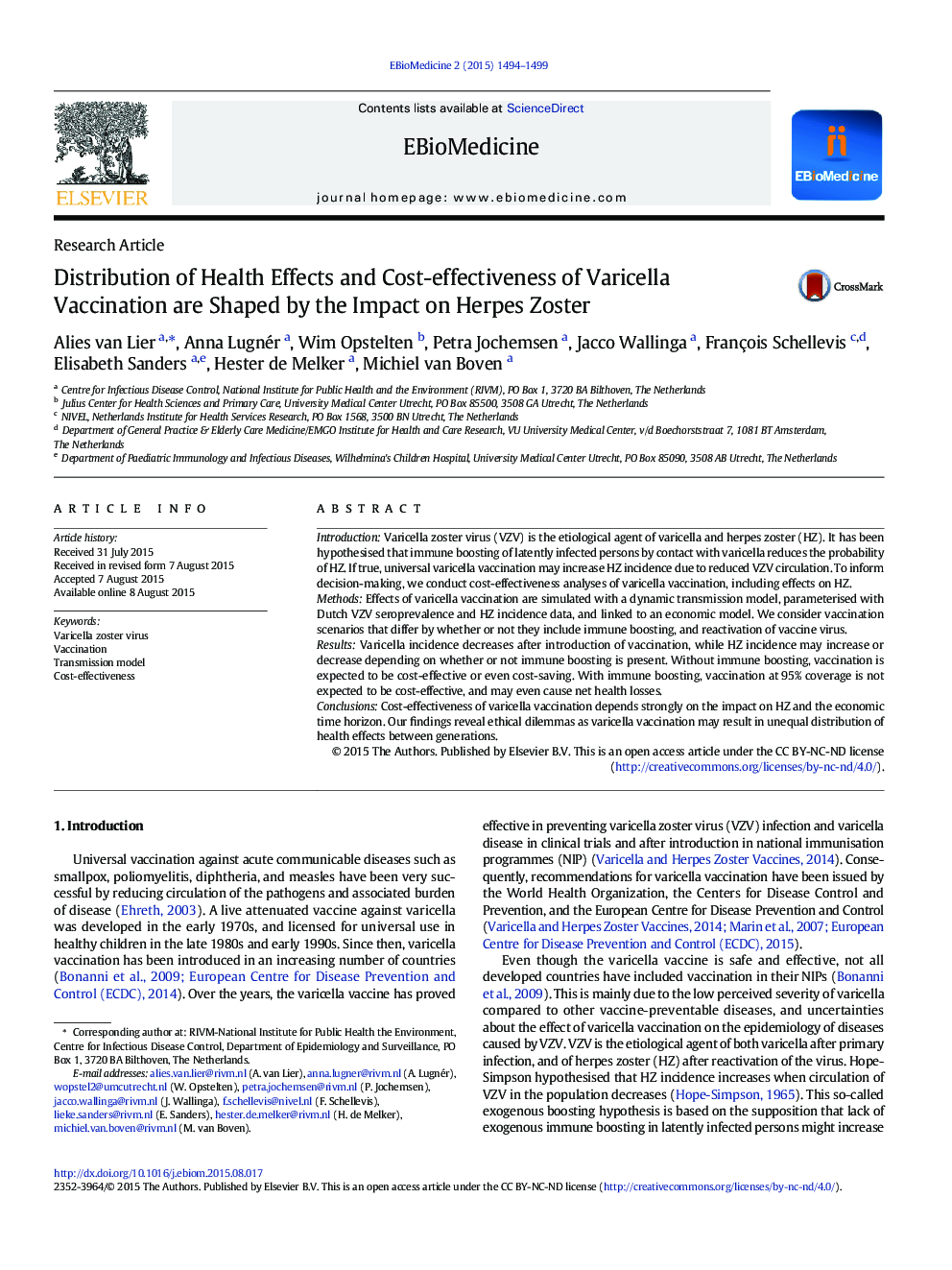| کد مقاله | کد نشریه | سال انتشار | مقاله انگلیسی | نسخه تمام متن |
|---|---|---|---|---|
| 2121238 | 1085772 | 2015 | 6 صفحه PDF | دانلود رایگان |
• Cost-effectiveness of varicella vaccination depends strongly on the impact on herpes zoster and the economic time horizon.
• Varicella vaccination may result in profound trans-generational differences in distribution of health benefits and losses.
• Ethical dilemmas could arise, as unvaccinated groups may be exposed to a substantially increased health hazard.We study the impact of universal childhood varicella vaccination by dynamic transmission modelling and cost-effectiveness analyses. Scenarios that are considered differ by whether or not immune boosting is included, and whether or not reactivation of vaccine virus is possible. Health effects of varicella vaccination in scenarios with immune boosting are unevenly distributed: cohorts born just before introduction of vaccination and persons who refuse vaccination may pay the price for health gains in vaccinated cohorts by an increased lifetime risk of herpes zoster. These results uncover an ethical dilemma, as varicella vaccination could result in significant trans-generational inequalities of health effects.
IntroductionVaricella zoster virus (VZV) is the etiological agent of varicella and herpes zoster (HZ). It has been hypothesised that immune boosting of latently infected persons by contact with varicella reduces the probability of HZ. If true, universal varicella vaccination may increase HZ incidence due to reduced VZV circulation. To inform decision-making, we conduct cost-effectiveness analyses of varicella vaccination, including effects on HZ.MethodsEffects of varicella vaccination are simulated with a dynamic transmission model, parameterised with Dutch VZV seroprevalence and HZ incidence data, and linked to an economic model. We consider vaccination scenarios that differ by whether or not they include immune boosting, and reactivation of vaccine virus.ResultsVaricella incidence decreases after introduction of vaccination, while HZ incidence may increase or decrease depending on whether or not immune boosting is present. Without immune boosting, vaccination is expected to be cost-effective or even cost-saving. With immune boosting, vaccination at 95% coverage is not expected to be cost-effective, and may even cause net health losses.ConclusionsCost-effectiveness of varicella vaccination depends strongly on the impact on HZ and the economic time horizon. Our findings reveal ethical dilemmas as varicella vaccination may result in unequal distribution of health effects between generations.
Journal: EBioMedicine - Volume 2, Issue 10, October 2015, Pages 1494–1499
